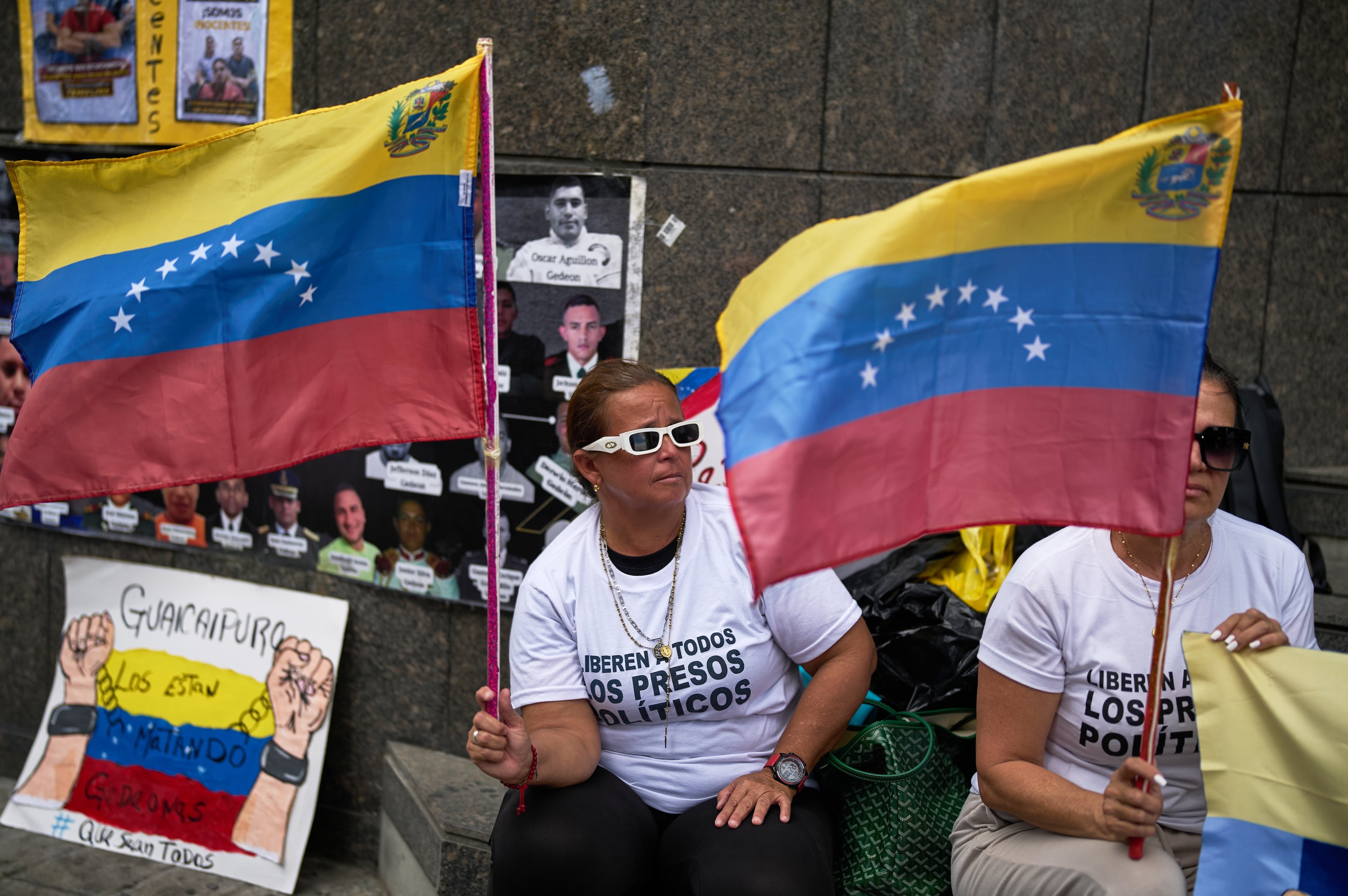Metro Atlanta journalist deported Friday after legal battle

Local journalist Mario Guevara, who built a large following in metro Atlanta and beyond covering immigration enforcement for a Spanish-speaking audience, was deported Friday to his native El Salvador.
Guevara livestreamed a video of Salvadoran journalists interviewing him Friday afternoon upon his arrival in Olocuilta, a town that is near the Salvadoran airport and famous for pupusas.
Climbing out of a Salvadoran border patrol truck, Guevara wiped away tears as he video-called his family, looked around and said, “My homeland,” three times in Spanish.
“This wasn’t how I wanted to go to my homeland, but thank God,” he said.
Guevara said half his family is in El Salvador and the other half, including his wife and three children, are in the United States.
“I feel like my heart is divided,” Guevara said, adding: “At the end of the story, I feel sad, but also I feel happy to be in my homeland.”
Guevara said he had lost 25 or 30 pounds since being arrested. He said he still had marks from handcuffs that were not removed from his wrists and ankles until he entered El Salvador.
“Because I am in El Salvador, I am no longer your prisoner,” he said addressing the United States. “I feel free for the first time.”
But he vowed to come back someday.
“We’re going to get through it,” he said. “Life goes on.”

Guevara’s 21-year-old son, Oscar, posted a video Thursday night to the MGNews social networks, which are managed by his father.
“We’re devastated, but at least he isn’t dead, and that’s the only thing that gives us hope,” Oscar Guevara said in Spanish.
“When this sadness passes, I know we’re going to rise up, this time even stronger,” he added.
Oscar Guevara said the Committee to Protect Journalists told the family Thursday that his father was in Louisiana and the Salvadoran government told them the deportation flight was scheduled for Friday morning.
Guevara entered the United States in 2004 and applied for asylum. His application was denied in 2012, but an immigration judge suspended deportation proceedings against him at the time.
He was arrested in June while livestreaming a protest in DeKalb County against the Trump administration and U.S. Immigration and Customs Enforcement. He was charged with obstructing law enforcement officers, unlawful assembly and pedestrian walking on a road. The charges were later dropped, but he was quickly transferred into ICE detention.
An immigration appeals court ordered Guevara removed last month. His lawyers asked the U.S. Court of Appeals for the 11th Circuit to pause the deportation, which the court denied this week.
Although the request to pause Guevara’s removal was denied, he can continue to appeal his deportation in the same court and plans to keep pursuing the case from El Salvador, said Scarlet Kim, a senior staff attorney for the American Civil Liberties Union.
“We hope that he will be able to return to the U.S. eventually,” Kim said. “The whole detention-and-removal consequences of his essentially reporting on a No Kings protest in June is profoundly unjust and terrifying to journalists who cover law enforcement activity, particularly noncitizen journalists.”
The Department of Homeland Security has denied targeting Guevara because he is a journalist.

Oscar Guevara, who is a U.S. citizen, applied in April to sponsor his father for a green card. Oscar Guevara was diagnosed with a brain tumor four years ago and suffered a stroke during surgery to remove it, which left him with lasting nerve damage and periodic seizures. His father helped care for him and drive him to appointments.
Federal appeals court judges denied Mario Guevara’s request to pause his deportation because he did not submit his own application for a green card and his son’s application had not been approved, according to an order filed Wednesday.
“Whether local officers violated Guevara’s First Amendment rights by arresting him at the protest is not before us today,” said the order, written by Judge Embry J. Kidd. “Nor is whether he was targeted for removal based on his constitutionally protected activities.”
Guevara lived in Lilburn with his wife and three children: Oscar, 27-year-old Katherine and a teenage son.

Oscar Guevara said he and his younger brother were planning to fly to El Salvador on Sunday to bring their father his cameras, clothes and other belongings.
The Committee to Protect Journalists said Guevara was deported in retaliation for his reporting activity, the first such instance the organization has documented in the United States.
“Mario Guevara’s deportation is a troubling sign of the deteriorating freedom of the press under the Trump administration,” Katherine Jacobsen, CPJ’s U.S., Canada and Caribbean program coordinator, said in a statement. “Make no mistake, this is not a simple immigration case as authorities would have the public believe. Guevara was first detained in retaliation for his reporting and throughout his prolonged detention the government argued that he was being held because his livestreaming activity posed a danger to law enforcement activity. It is shameful that the U.S. government is deporting Guevara.”
Paul O’Brien, executive director of Amnesty International USA, said Guevara’s deportation was an attack by the Trump administration on journalists’ First Amendment rights. He also called it a human rights violation, noting Guevara spent time in solitary confinement.
“The already cruel immigration system is being used as a testing ground for widespread authoritarian practices under Trump, and now, with the deportation of Mario Guevara, it is being weaponized to silence a journalist,” O’Brien said in a statement. “A free press plays a vital role in holding governments and other powerful actors to account. To do this, the press must be able to report freely and independently without being threatened, intimidated or punished. Instead, President Trump has attempted to create fear among the entire press community.”



